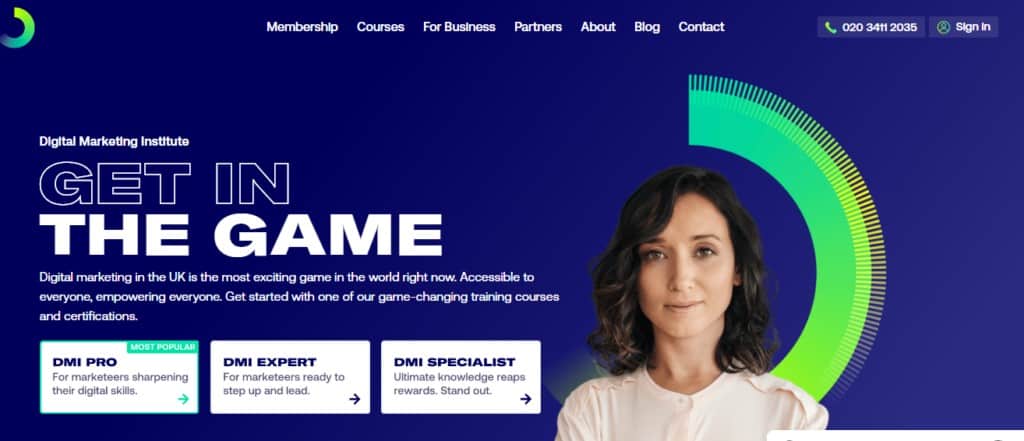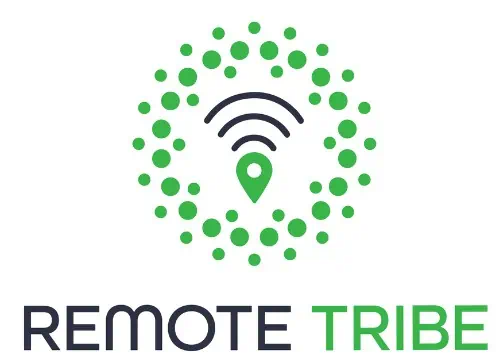A growing number of reports and studies recognize the massive role that digital technologies play in improving the business environment across the globe. It provides an opportunity for both developed and less developed countries to achieve sustainable growth and to create decent jobs and thereby to contribute to the achievement of the Sustainable Development Goals.
Several studies have show also that digital entrepreneurship can strongly contribute to reducing poverty and creaiting prosperity and improve livelihoods. Digital entrepreneurs can reap the benefits of the global market.
Young people can build start-ups and innovative community initiatives by using digital technologies. Moreover, they can acquire those skills online with the help of the digital education platforms like Skillshare and Udemy.
Digitalization can also create opportunities in sectors such as cultural and creative industries which employ proportionately greater numbers of young people and women.
To give some perspective, the online platform Shopify dedicated to entrepreneurs had a 126% year-over-year average growth for Shopify Plus merchants. It has now reached a Market Cap of $10 billion.
The spread of internet and the increase in popularity of the social networks have also been contributing to the development of digital entrepreneurship.. Their usage of social networks continues to grow and they are major growth factor for digital businesses. Just to give you an idea of how much social media counts in the equation, have a look at the stats below.
What Is A Digital Entrepreneur?
A Digital entrepreneur is a person focused on creating new ventures by using existing digital technology or developing new ones with the purpose to sell digital products or services exclusively.
In other words, the meaning of a digital (marketing) entrepreneur is a new breed of entrepreneur that creates and develops businesses exclusively digital. Then it markets them only in the digital space of the world wide web.
A digital entrepreneur can also take an offline model and bring it into the online world by optimizing and disrupting the processes, reducing costs and engaging in efficient marketing of the products/services.
Digital entrepreneurship was defined by the European Commission in 2015 as:
Digital entrepreneurship is a subcategory of entrepreneurship in which some or all of what would be physical in a traditional organization has been digitized. Given the rapid rise of digital activities across all industries, it seems likely that digital entrepreneurship will become more common, suggesting a need for a deeper understanding of this phenomenon (Matlay and Westhead, 2007; Walker, 2006; Yen, Chou, Chen and Chen 2002).
To get a good taste of the impact of digital entrepreneurship, let’s take Australia as an example. In Australia, with the rapid growth of ICT and digital technologies, the contribution of the ICT sector to the Australian economy was very impactful. The direct contribution of the internet to the Australian economy is around $50 billion, or 3.6% of GDP (AIIA 2015).
Seek, the largest job advertising agency in Australia, has reported that 10% of job vacancies are currently in the ICT sector. Some research shows that small and medium sized enterprises actively using new technologies to improve communications and business processes create more new jobs and generate more revenue than SMEs that use little technology.
Moreover, a recent PWC analysis (2015) estimates that Australian small businesses can generate additional $49.2 billion revenues in the next ten years by making better use of digital technologies, of which 53 per cent could be realized in rural and regional Australia.
The five pillars of Digital entrepreneurship every entrepreneur should be aware about
1. Digital knowledge base and ICT market
2. Digital business environment
3. Access to finance
4. Digital skills and e-leadership
5. Entrepreneurial Culture
Why you should consider becoming a digital entrepreneur
It is absolutely true. Opening a digital biz has plenty of advantages compared to a traditional business, starting from much lower costs to easy scalability. We will talk about each of them below so make sure you read every single one and understand why so many people are getting into digital entrepreneurship right now.
Ease of Manufacturing and Storing
A business venture that deals with digital products have two benefits: low manufacturing costs and less storing space. In the process of producing or manufacturing digital products, no physical equipment is necessary to produce them and no space is required to store it either. This is due to“just in time” production which saves many types of costs which are related to traditional entrepreneurship. There are more benefits for moderate and extreme digital entrepreneurship when compared to traditional and partial digital entrepreneurship. This already gives you a huge upside vs a traditional business.
Ease of Entry Establishing and Lower Barriers
A digital business startup is easier to get setup when compared to a traditional entrepreneurial business. For example, the time taken to build a website which sells the existing goods and services is considerably lower. Existing platforms like eBay and Amazon have enabled digital entrepreneurs to utilize the opportunities to form small business ventures and tap the market in a very short time. The partial digital ventures are the one which face troubles due to this process as some of the activities require more effort. When high effort is required, the companies which have less capability of entry may fail. As you would imagine, being a full digital business offers a lot of upsides.
Digital Products provide more benefits to (digital) entrepreneurs. A digital product can be adapted easily with innovative changes without interrupting the process of manufacturing and marketing of goods. For example, editing an ebook for changes or modify a feature on a website are literally cost free.
Digital Services demand and offering have grown higher and higher in the last decade.
The important point an entrepreneur should remember is that the service provided should be worthy to the price they charge for the service. A digital venture is most likely to compete on a global scale, so demand, supply and prices are extremely important for the success.
A digital business helps an entrepreneur to obtain a much higher number of customers and can also be an opportunity to know and understand the worldwide demand.
Just like a traditional business, an digital organization which is market oriented should focus on identifying and reacting to customer needs and observing competitor behavior which are in fact more important for digital entrepreneurs.
Get our best tips FOR FREE and learn how to become a successful digital nomad and work from anywhere!
PLUS top advice on everything related to location independence lifestyle:
- Coliving
- Working locations
- Making money online
- Travel advice
- Nomad interviews
Ease of Distribution in Digital Marketplace
Digital ventures allow products to be sent around the world quickly and cheaply. Some people call this property the “reach” of the Internet. In the past, customers were forced to rely on their local merchants. Today, anyone in the world can access basically an unlimited range of products and services over the Internet. Moreover, next day and the same day delivery is now available in a lot of countries, so good move really fast.
For digital products like music(Spotify), movies (Netflix) or software, the distribution of a product becomes essentially instantaneous and free.
With the launch of a web site, the digital business goes global immediately, with access to customers and suppliers worldwide.
Companies such as FedEx and UPS have taken advantage of this. Efficient digital entrepreneurs can deliver physical goods almost anywhere within twenty-four hours of when the order was placed, with minimal difficulty. This allows the digital entrepreneur the chance to address a worldwide demand that may not be sufficiently concentrated to support a local business.
On the other hand, digital entrepreneurs face global competition from the moment they put up their websites. The digital marketplace also expects businesses to operate “24-7”. 12 Automation can handle much of the demands this places on a new venture, but the incessant demands of the marketplace can fray the soul of an unprepared digital entrepreneur.
Digital ventures allow products to be sent around the world quickly and cheaply. Some people call this property the “reach” of the Internet. In the past, customers were forced to rely on their local merchants.
Today, anyone in the world can access basically an unlimited range of products and services over the Internet. Moreover, next day and the same day delivery is now available in a lot of countries, so good move really fast.
For digital products like music(Spotify), movies (Netflix) or software, the distribution of a product becomes essentially instantaneous and free.
With the launch of a web site, the digital business goes global immediately, with access to customers and suppliers worldwide.
Companies such as FedEx and UPS have taken advantage of this. Efficient digital entrepreneurs can deliver physical goods almost anywhere within twenty-four hours of when the order was placed, with minimal difficulty. This allows the digital entrepreneur the chance to address a worldwide demand that may not be sufficiently concentrated to support a local business.
On the other hand, digital entrepreneurs face global competition from the moment they put up their websites. The digital marketplace also expects businesses to operate “24-7”. 12 Automation can handle much of the demands this places on a new venture, but the incessant demands of the marketplace can fray the soul of an unprepared digital entrepreneur.
Skills you need to become a successful digital marketing entrepreneur
- Communication
- Finances
- Branding
- Marketing
- Networking
- Automation
- Design
- Analytics
- Technical
- Learning
Resources to help you on your journey to success
Courses

In this course, you will learn how to find your audience using the right media channel and how to grow you audience. You will also go through PPC, SEO and building digital display campaigns. Digital Marketing strategy is a very important piece of the course and there is a chapter about that too.
At the end of the course you will get a DMI certification.
2. Digital Marketing Nano-Degree at Udacity.com (online)
Gain real-world experience running live campaigns as you learn from top experts in the field. Launch your career with a 360-degree understanding. In this course, you’ll learn to create marketing content, use social media to amplify your message, make content discoverable in search, run Ads campaigns and advertise on Facebook. Additionally, learn how display and video ads work and how to market with email, and measure and optimize with Google Analytics.
For people living in Europe or who want to study entrepreneurship in Europe, you can follow an off-line regular university course in Barcelona at ESEI.
The course is taught in English with a duration of one year. The tuition fee is around 7,500 EUR.
You will be studying The Lean Startup Model, UX design, Digital Business Strategy and Funding.
You can find all the details here.














